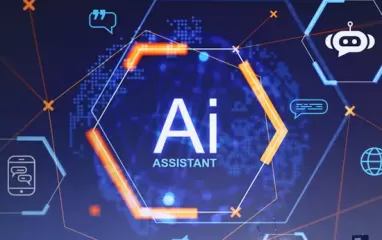Other recent blogs



Let's talk
Reach out, we'd love to hear from you!
The pace at which Artificial Intelligence (AI) is transforming industries is nothing short of astonishing. Yet within this rapid evolution, one particularly disruptive frontier is Agentic AI — autonomous, decision-capable agents that don't merely respond to prompts but proactively take initiative, orchestrating complex workflows across data ecosystems.
For data professionals, especially those in engineering, analytics, and operations, this represents not just another wave of tooling, but a fundamental shift in how their roles, responsibilities, and expectations are being redefined.
In this blog, we’ll unpack how Agentic AI is reshaping data roles, spotlight current developments in Agentic AI for data engineering and predictive analytics, outline challenges for organizations, and explain how Kellton is uniquely positioned to help businesses navigate and thrive in this emerging landscape.
How is Agentic AI changing data roles?
Traditionally, data roles have been built around human-centric workflows. Data engineers build and maintain pipelines, data analysts query and visualize, data scientists model and interpret, and business stakeholders consume insights. Even with AI and ML models, the workflows have largely remained sequential and reliant on manual supervision.
Agentic AI flips this dynamic by not waiting for the instructions. They can autonomously decide which data to query, how to process it, what models to train, when to retrain them, and even trigger downstream business actions — all without human micromanagement. This proactive behavior introduces several key shifts:

- From execution to orchestration: Data engineers are moving from manually configuring data workflows to supervising AI agents that manage pipelines dynamically, responding to anomalies, scaling resources, or optimizing data flows in real-time.
- From analysis to interpretation: Data analysts are evolving into curators and validators of AI-driven insights, focusing on contextualizing what agentic systems uncover and ensuring ethical, compliant interpretations.
- From model development to model governance: Data scientists are focusing less on building models from scratch and more on supervising AI agents that automatically select, build, deploy, and monitor models based on shifting data realities.
This isn’t about eliminating roles but elevating them — moving from labor-intensive, reactive tasks to higher-order, strategy-driven responsibilities.
Current developments in Agentic AI for Data Engineering and Predictive Analytics
While Agentic AI is still maturing, recent advancements are rapidly making it a practical reality within modern data stacks. Let’s spotlight a few active developments relevant to data engineering and predictive analytics.

- Autonomous data pipeline management
Agentic AI agents are now capable of autonomously handling ETL/ELT processes. These agents can detect schema changes, identify bottlenecks, and dynamically reroute or reconfigure pipelines. Open-source projects and cloud-native platforms are beginning to integrate agentic capabilities, allowing systems to self-heal, auto-scale, or auto-document pipelines.
Implication: Data engineers no longer spend hours debugging pipelines or managing resources. Instead, they oversee AI agents that handle the operational burden, focusing their expertise on architecture strategy and data quality frameworks. - Predictive Analytics agents
In predictive analytics, Agentic AI models can automatically source new datasets, enrich existing ones, retrain models when performance metrics dip, and deploy updated models in production — often without explicit instructions. Some platforms now include agent-based ML model marketplaces where agents can bid for the best-fit model for a task.
Implication: Data scientists shift from coding and retraining to defining guardrails, compliance checks, and business outcome KPIs for these autonomous predictive systems. - Agent-led data quality and anomaly detection
Modern data ecosystems demand constant monitoring of data health. Agentic AI can continuously scan data flows for anomalies, inconsistencies, or governance breaches—flagging issues and initiating remediation processes, such as backfilling data or disabling faulty sources.
Implication: Data operation teams transition from reactive fire-fighting to proactive oversight, focusing on refining AI decision protocols and improving system resilience.
Challenges of embracing Agentic AI for numerous data roles
The Agentic AI certainly brings many business advantages including operational efficiency, predictive agility, and autonomous decision-making, however the journey to strategic enterprise-wide adoption can be a bumpy ride. For businesses and data professionals alike, this shift often becomes more than a technical upgrade full of complexities and to navigate successfully, they need to rethink everything from how data ecosystems can be designed, governed, and supervised.
One of the most immediate challenges is the skills gap within existing data teams. Most data engineers, analysts, and scientists are accustomed to conventional, tool-driven workflows where processes are predefined and humans retain operational control. The rise of autonomous AI agents demands a very different skillset — one that blends technical fluency with a deep understanding of AI ethics, governance principles, and real-time decision oversight. Professionals must now learn not just how to build and tune models, but how to design, supervise, and intervene in autonomous systems where AI agents continuously make decisions without human initiation.
Alongside this, the issue of control and accountability becomes far more nuanced. In a world where AI agents can execute operational tasks, trigger business actions, or flag anomalies without waiting for human approval, clear accountability frameworks are essential. Who is ultimately responsible when an AI agent makes a sub-optimal call or inadvertently breaches a compliance threshold? This question becomes even more critical in regulated sectors like financial services, healthcare, and critical infrastructure, where operational missteps carry legal and reputational consequences. Enterprises must proactively establish traceability, auditability, and human override mechanisms to maintain control over agent-led operations.
System interoperability poses yet another barrier. Agentic AI thrives on seamless, real-time access to diverse data streams, operational systems, and analytics models. However, most enterprise environments are still saddled with fragmented, legacy infrastructure that limits data flow and interoperability. These silos make it difficult for AI agents to gather full-context insights or collaborate with other digital systems, increasing the risk of inconsistent decisioning or operational errors. Modernizing data architectures and enabling event-driven, AI-native platforms is not just a recommendation — it’s a prerequisite for successful Agentic AI adoption.
Finally, the issue of trust and explainability cannot be overlooked. For AI agents to be embraced at scale, business leaders, compliance officers, and frontline operators must be confident in their actions and reasoning. Unlike traditional AI models tucked away in dashboards, agentic systems take direct operational actions — making their decision logic and processes visible, auditable, and understandable to human stakeholders is both a technical challenge and an ethical responsibility. Building frameworks for explainability, outcome tracing, and AI ethics will be key to ensuring AI agents operate with transparency and earn organizational trust.
In short, while the potential of Agentic AI is extraordinary, realizing its value requires thoughtful navigation of these human, technical, and governance hurdles. Enterprises that address these challenges head-on — not just with new tools, but with new mindsets, skills, and operational frameworks — will be the ones to lead in this next chapter of AI-powered data operations.
How is Kellton enabling Agentic AI-driven data operations?
As a trusted leader in digital transformation, AI services, and data engineering, Kellton is at the forefront of helping enterprises not just adopt AI, but fundamentally rethink how their data ecosystems function in an agent-driven future. While many organizations are still trying to decode what Agentic AI means for their business, we are actively guiding clients through this disruptive shift — transforming static and manual data workflows into dynamic, autonomous, and self-directing ecosystems.
We don’t view Agentic AI as just another technology trend. At Kellton, we see it as a strategic operating model — one that redefines how data is gathered, processed, interpreted, and acted upon in real time. And we’re helping enterprises unlock this value through a comprehensive suite of services:
1. Agentic AI enablement consulting
The transition to Agentic AI isn’t a plug-and-play move — it requires clear strategy, organizational readiness, and thoughtful integration into existing business processes. Kellton’s consulting practice specializes in helping organizations make this leap intelligently and responsibly.
We work closely with CXOs, data leaders, and operational teams to:
- Assess current AI and data maturity.
- Identify the most viable, high-impact Agentic AI use cases across business functions.
- Design tailored AI-agent orchestration frameworks that align with specific business goals, operational KPIs, and regulatory requirements
- Build governance protocols and escalation hierarchies to manage AI-agent decisions and interventions.
Our approach ensures enterprises embrace Agentic AI not as a siloed tool but as a strategic capability embedded within their operational DNA.
2. Data stack modernization
Agentic AI thrives in modern, interoperable, and scalable data environments, which unfortunately, many enterprises still lack. Kellton addresses this head-on by helping businesses upgrade and re-engineer their existing data infrastructure to be AI-native.
Our data engineering teams specialize in:
- Modernizing legacy data platforms and integrating them with cloud-native architectures.
- Implementing event-driven data pipelines capable of real-time data ingestion and processing.
- Deploying AI model management systems and agent control layers that support dynamic, autonomous data workflows.
- Ensuring seamless interoperability between disparate systems, tools, and data sources, enabling AI agents to operate with full context and agility.
The result? A future-ready data stack where AI agents can continuously learn, adapt, and act in real time — securely and efficiently.
3. Custom AI Agent development and deployment
Every organization’s data challenges and business priorities are unique. That’s why Kellton doesn’t just offer generic AI solutions — we design and build custom AI agents specifically tailored to your operational environment.
Our AI engineering experts create and deploy intelligent agents for:
- Predictive analytics: Agents that autonomously source, model, and deliver forecasts.
- Anomaly detection: AI agents that continuously monitor data streams and flag (or rectify) quality issues.
- Data operations: Autonomous agents that manage pipeline performance, optimize resource usage, or trigger business actions based on data insights.
Each agent is designed with enterprise-grade standards for explainability so their decisions are transparent and auditable. Also, our team put greater attention towards governance to ensure responsible AI behavior aligned with your risk and compliance mandates. Lastly, we make zero compromise on security and data integrity protection towards unauthorized actions or escalations.
4. Governance, AI Ops, and Agent oversight frameworks
Agentic AI introduces exciting efficiencies — but also new responsibilities. Kellton ensures that enterprises retain full control and visibility over autonomous systems through robust governance frameworks.
We help organizations establish:
- AI agent monitoring dashboards to track agent actions, performance, and compliance in real time.
- Escalation workflows that route exceptions or flagged actions to human oversight when necessary.
- Audit trails and logs to ensure every AI decision is transparent and attributable.
- Policy-driven guardrails that limit AI-agent authority within predefined operational and ethical boundaries.
This ensures enterprises can leverage AI’s speed and autonomy while maintaining clarity, accountability, and regulatory compliance.
5. AI literacy, upskilling, and data role transformation programs
One of the biggest barriers to adopting Agentic AI is the skills gap within enterprise data teams. Most professionals today are trained for static, tool-based data workflows, not supervising AI agents that orchestrate data operations independently.
Kellton actively bridges this gap by offering custom AI literacy and upskilling programs for:
- Data engineers are learning to manage AI-native pipelines and agent governance.
- Data analysts and business users are gaining fluency in interpreting agent-driven insights and understanding AI decision-making logic.
- Data scientists focusing on AI model lifecycle management, bias mitigation, and ethics in agentic systems.
These programs teach new tools and help professionals elevate their roles and stay relevant in an increasingly AI-driven enterprise landscape.
Conclusion: Embrace the shift with Kellton
Agentic AI isn’t a distant vision; it’s unfolding right now, reshaping how data ecosystems operate and how professionals interact with them. The organizations that will thrive aren’t those resisting change, but those proactively redefining their data roles, architectures, and operating models to harness this new AI paradigm.
At Kellton, we believe the future of data operations isn’t just faster or bigger — it’s smarter, self-directed, and agent-driven. Our comprehensive, enterprise-grade Agentic AI services are designed to help organizations realize this future, enabling them to stay ahead of the competition, improve decision velocity, and unlock new levels of operational resilience.
Whether you’re exploring Agentic AI use cases or looking to operationalize autonomous data agents at scale, Kellton has the strategic expertise, technical muscle, and data governance frameworks to confidently guide you on your journey.
As your transformation partner, Kellton is here to help you navigate this journey — building AI-agent ecosystems that are resilient, scalable, and outcome-focused. Connect with Kellton’s AI and Data Engineering experts to explore how Agentic AI can elevate your business operations, reduce costs, and unlock predictive intelligence at scale.



